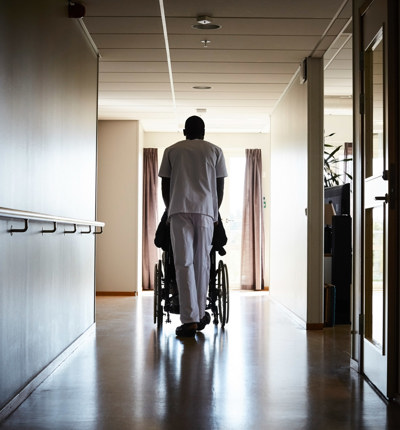
Why have Human Rights failed people with learning disabilities in the UK?
This week's BBC Panorama programme exposed the abuse of patients at Whorlton Hall Hospital. Catriona Rubens looks at how the legal system has failed to prevent yet another scandal.
Posted on 24 May 2019
Eight years ago, Panorama exposed the horrific abuse of people with learning disabilities and / or autism at Winterbourne View. A national outcry and a rally to arms followed.
The government commissioned a review and promised to close all such inpatient units within two years as part of its ‘Transforming Care’ programme, with a supposed shift to care in the community. By 2019, it has completely failed to deliver on that promise.
Instead, it has been left again to a TV programme – not the regulator or those who commission the care - to reveal the systemic mistreatment and torture of people with a learning disability and / or autism in residential hospitals.
In graphic and distressing footage, the programme revealed staff members at Whorlton Hall, a privately run hospital, deliberately taunting and goading residents; using their treasured possessions to simulate sexual acts; sharing tips on how to hurt patients out of sight from CCTV; and openly admitting to assaulting the very people they were employed to care for. That it represented a catalogue of human rights abuses was unquestionable .
Yes, the police can investigate criminal activity by the perpetrators and patients or their families could bring legal claims for damages, as many did following Winterbourne View. But criminal and civil proceedings are by their nature reactive, a last resort after cruelty and abuse has already taken place.
The evidence - not just from Winterbourne View and Whorlton Hall, but in inpatient settings up and down the country - shows that individual human rights simply are not protected in an institutional model of ‘care’.
As Norman Lamb MP said in Parliament following the transmission of the Panorama programme: “The truth is that, seven years on from Winterbourne View, the system continues to sanction a model of care that is outdated and wrong.”
He made the point that the current system is “tolerating widespread human rights abuses” and that “what families want is not another review; they want action to protect their loved ones”.
As a solicitor working in this area, I am all too aware of this from the cases we deal with in the abuse team, including representing families of residents at Winterbourne View and ‘James’ who remained in an Assessment and Treatment Unit for nearly six years.
These kinds of settings routinely dehumanise and institutionalise patients and their carers. Fixed routines require people with complex needs to ‘fit’ into a system that so often fails to take account of their individual traits and preferences.
Instead, patients are sent to bed early to fit in with the staffing rota ; simple and humane techniques that would calm a particular patient with sensory overload are ignored; and it is easy for a staff culture to set in whereby people with learning disabilities and / or autism are viewed as less than human.
That is the result of continued institutionalisation that should have been confined to the Victorian era. It’s hard to imagine how a life where someone is locked up, bored and living miles away from their family and friends, can be viewed as any kind of quality of life at all.
The question for us, as human rights lawyers, is why is our legal system failing to protect people with learning disabilities and / or autism, and what we can do about it?
On the face of it, the legal framework is there. Public service providers should treat patients in accordance with the protections in the Human Rights Act.
The common law of negligence sets out the duty of care owed by care companies and State bodies. The UK is a signatory to the UN Convention on the Rights of Persons with Disabilities. And yet, despite our law and the international conventions to which the UK is a signatory, commissioners continue to fund institutions like Whorlton Hall, private hospitals that embody a truly dehumanising model of care.
Human rights commitments have represented empty words for the patients who suffered there. It is arguable that the failures of the Government to implement the Winterbourne View Concordat are so gross and serious that they amount to a systemic contravention of these Human Rights instruments.
Fundamentally, however, we get the social care system that we, as a society, demand.
The marketisation of health and social care has commodified people with learning disabilities and / or autism into units of profit for private care providers.
At the ballot box, a fit for purpose social care system has too often been at the bottom of the pile of manifesto commitments. Individuals who display behaviour that challenges are still viewed as ‘others’ who are ‘out of sight, out of mind’: our failure to open communities and empower people with learning disabilities to play an active role in society has directly contributed to the attitudes displayed by care staff on Panorama.
We are all complicit until these scandals end. For human rights to mean anything in practice, they must be integrated into the day-to-day functioning of society.
The existing framework is too general and difficult to navigate for non-lawyers. As Sir Stephen Bubb recommended after the Winterbourne View scandal, a Convention setting out specific, understandable examples of how human rights apply, and can be enforced, for people with a learning disability and / or autism is urgently needed.
While institutional care models exist, our legal system will continue to allow the exploitation, violence and abuse of patients to occur. Human rights law is only as good as the society that implements it. We must demand better.

